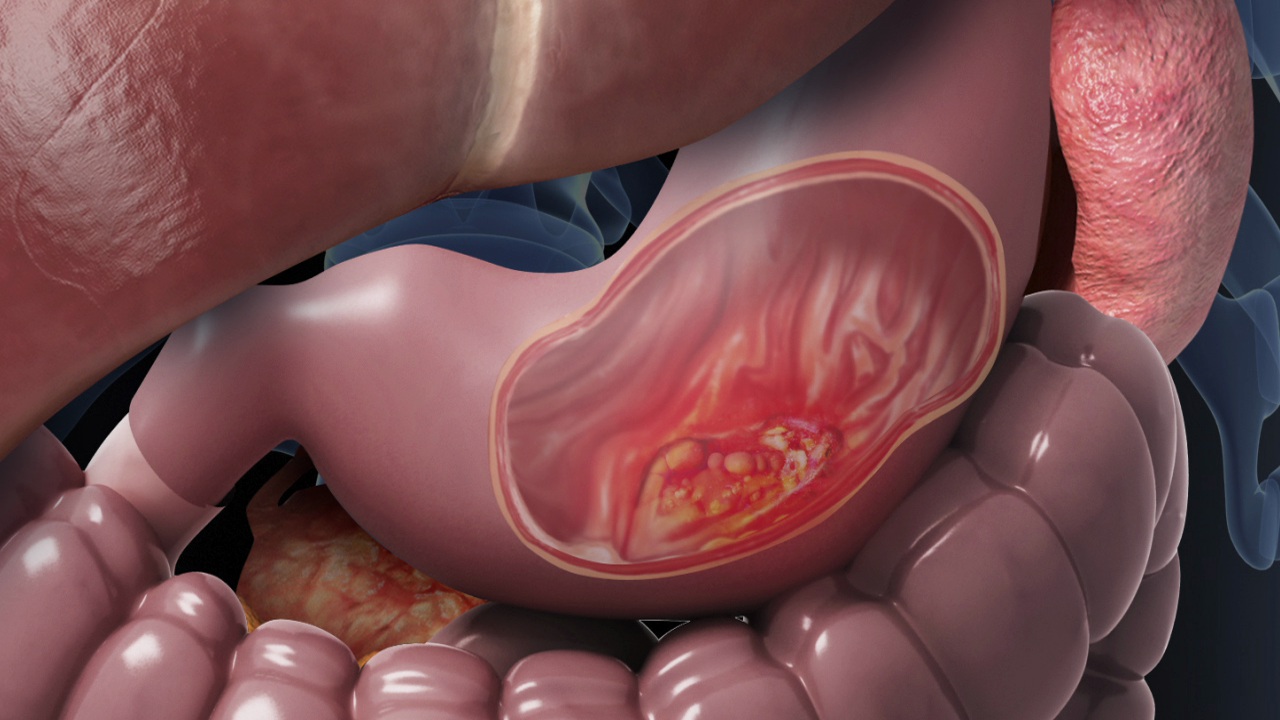Stomach Cancer
Stomach cancer, also known as gastric cancer, occurs when malignant cells form in the lining of the stomach. Early detection is challenging as symptoms often don't appear until the disease is advanced. Understanding the signs and risk factors is crucial for prevention and early intervention.
Dr. Arvind Kumar has expertise as the best gastric cancer treatment in Delhi. With over 22 years of experience in managing and treating stomach cancer, Dr. Arvind Kumar provides advanced and personalized care to patients.
Signs and Symptoms of Stomach Cancer
-
Indigestion or heartburn
-
Abdominal pain or discomfort
-
Nausea and vomiting
-
Loss of appetite
-
Unexplained weight loss
-
Blood in stool or vomiting blood
Types of Stomach Cancer
Stomach cancer can be classified into several types, including:
-
Adenocarcinoma: The most common type, originating in the glandular cells of the stomach lining.
-
Lymphoma: A type of cancer that occurs in the immune system tissue of the stomach.
-
Gastrointestinal stromal tumors (GISTs): Rare tumors that originate from the interstitial cells of Cajal in the stomach wall.
-
Carcinoid tumors: Tumors that develop from hormone-producing cells in the stomach lining.
When to Consult a Doctor
If you experience persistent stomach pain, unexplained weight loss, or difficulty swallowing, it's important to seek medical attention.
Early diagnosis can greatly improve treatment outcomes.
Dr. Arvind Kumar is one of the best stomach cancer doctor in Delhi , Stomach Cancer
Doctor in Rajinder Nagar, Stomach Cancer Doctor in Rajendra Place, Stomach Cancer Doctor in Karol Bagh, Stomach Cancer Doctor in Patel Nagar,
Stomach Cancer Doctor in Kirti Nagar, Stomach Cancer Doctor in Moti Nagar, Stomach Cancer Doctor in Jhandewalan, Stomach Cancer Doctor in Shadipur,
Stomach Cancer Doctor in Shastri Nagar, Stomach Cancer Doctor in Paharganj, Best Stomach Cancer Doctor in Rajinder Nagar, Best Stomach Cancer Doctor
in Rajendra Place, Best Stomach Cancer Doctor in Karol Bagh, Best Stomach Cancer Doctor in Patel Nagar, Best Stomach Cancer Doctor in Kirti Nagar,
Best Stomach Cancer Doctor in Moti Nagar, Best Stomach Cancer Doctor in Jhandewalan, Best Stomach Cancer Doctor in Shadipur, Best Stomach Cancer
Doctor in Shastri Nagar, Best Stomach Cancer Doctor in Paharganj providing expert care and treatment
Causes
While the exact cause of stomach cancer is unknown, factors such as Helicobacter pylori infection, smoking, and dietary choices may increase the risk.
Risk Factors Involved in Stomach Cancer
-
Helicobacter pylori infection: This bacterial infection is a major risk factor for stomach cancer.
-
Diet: A diet high in salty, smoked, or pickled foods can increase the risk.
-
Smoking: Smoking doubles the risk of developing stomach cancer.
-
Family history: A family history of stomach cancer can increase your risk.
-
Age and gender: Stomach cancer is more common in older adults, particularly men.
Stomach Cancer Diagnosis
Diagnosing stomach cancer typically involves:
-
Endoscopy: A flexible tube with a camera is used to examine the inside of the stomach.
-
Biopsy: A tissue sample may be taken during an endoscopy to check for cancer cells.
-
Imaging tests: CT scans, MRI, and X-rays help visualize tumors in the stomach.
-
Blood tests: To check for markers that may indicate cancer.
Stages of Stomach Cancer
Stomach cancer stages range from 0 to 4:
Stage 0: Cancer is limited to the innermost layer of the stomach lining.
Stage 1: Cancer has started to spread to the muscle layer but remains within the stomach.
Stage 2: Cancer has spread further into the muscle or to nearby lymph nodes.
Stage 3: Cancer has spread to nearby tissues, lymph nodes, or other parts of the stomach.
Stage 4: Cancer has metastasized to distant organs, such as the liver or lungs.
Treatment of Stomach Cancer
Surgical Intervention
Surgery is often the primary treatment and may include:
-
Partial gastrectomy: Removal of part of the stomach containing cancer.
-
Total gastrectomy: Removal of the entire stomach, with the esophagus connected directly to the small intestine.
-
Palliative surgery: To relieve symptoms and improve quality of life in advanced stages.
Radiation Therapy
-
Radiation therapy: High-energy rays are used to target and kill cancer cells, often used in conjunction with surgery or chemotherapy.
Systemic Treatments
-
Chemotherapy, targeted therapy, and immunotherapy can help treat stomach cancer, especially in advanced stages.
Palliative Care
-
Palliative care focuses on managing symptoms, including pain and digestive issues, to improve the quality of life for patients with advanced stomach cancer.
Prevention
To reduce the risk of stomach cancer, consider the following:
-
Quit smoking: Smoking is a significant risk factor for stomach cancer, so quitting is crucial.
-
Healthy diet: Eating a diet rich in fruits, vegetables, and whole grains while limiting salty, smoked, or pickled foods can help reduce risk.
-
Limit alcohol consumption: Excessive alcohol intake is linked to an increased risk of stomach cancer.
-
Regular check-ups: Particularly for individuals with a family history of stomach cancer or other risk factors.
Stomach Cancer Doctor In Rajinder Nagar,
Rajendra Place,
Karol Bagh,
Patel Nagar,
Kirti Nagar,
Moti Nagar,
Jhandewalan,
Shadipur,
Shastri Nagar,
Paharganj.
for more details please contact us at +919818826423.
-
Stomach Cancer Doctor in Rajinder Nagar
-
Stomach Cancer Doctor in Rajendra Place
-
Stomach Cancer Doctor in Karol Bagh
-
Stomach Cancer Doctor in Patel Nagar
-
Stomach Cancer Doctor in Kirti Nagar
-
Stomach Cancer Doctor in Moti Nagar
-
Stomach Cancer Doctor in Jhandewalan
-
Stomach Cancer Doctor in Shadipur
-
Stomach Cancer Doctor in Shastri Nagar
-
Stomach Cancer Doctor in Paharganj
